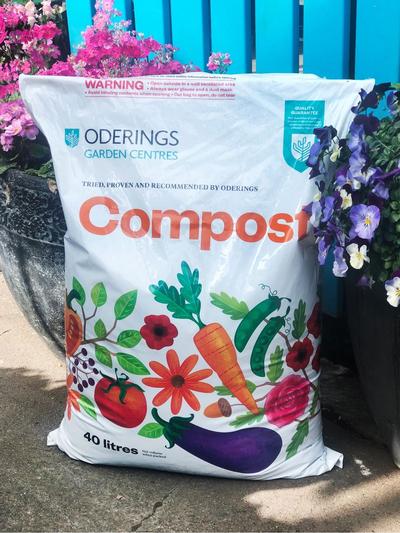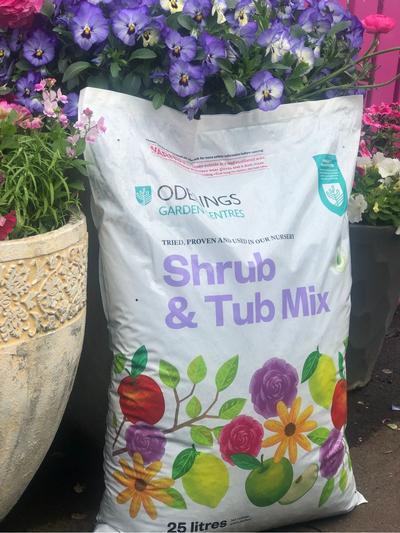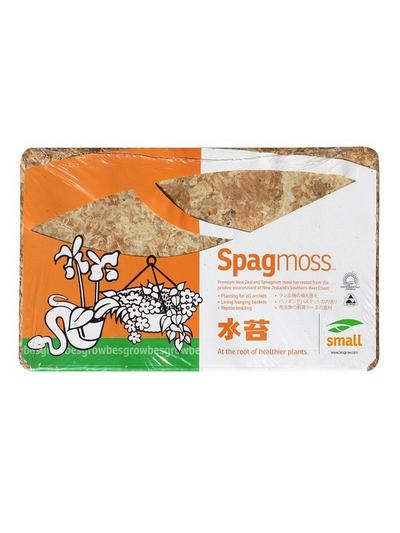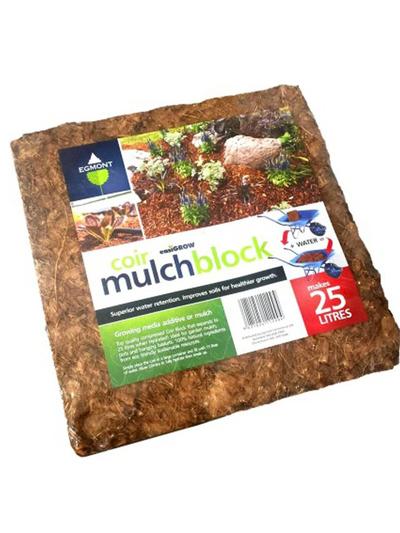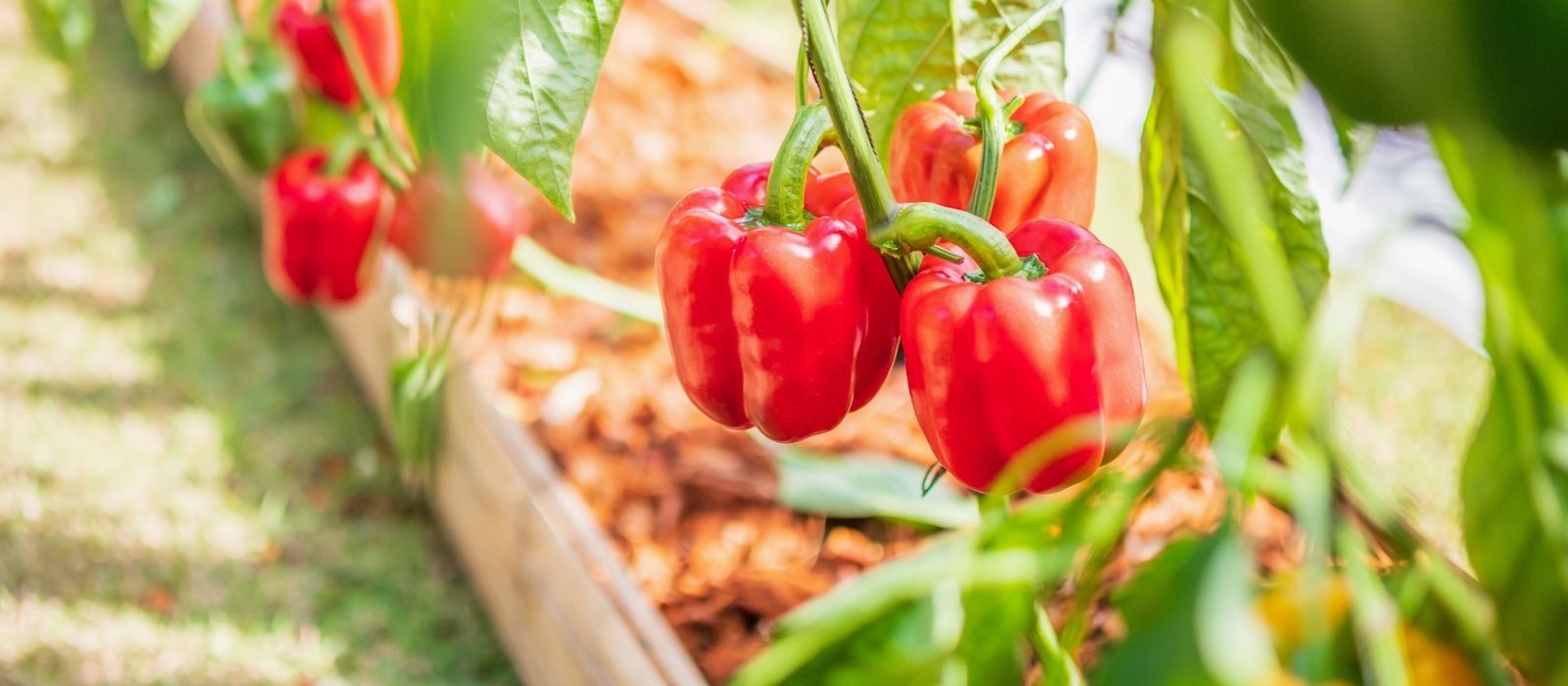
Position
Garden: Plant peppers in a sunny, sheltered spot with well-draining soil. Position them against a north-facing wall to maximise sunlight and protect them from strong, cold winds. Consider using a cloche or mikroclima fabric to protect the plants during frosty conditions.
Pots: Use pots with a minimum capacity of 15 litres. Ensure the pots have good drainage and place them in a warm, sunny location to encourage strong growth.
Prepare Soil
Garden: Prepare the soil by incorporating organic matter such as compost. Ensure the soil is well-draining, as peppers do not like to sit in wet conditions. Adding a slow-release fertiliser like Total Replenish will also help provide essential nutrients.
Pots: Plant using Oderings Shrub & Tub Mix. This mix is designed to retain moisture while providing good drainage, which is crucial for pepper plants.
Feed
Garden: Apply a balanced fertiliser in early spring when plants start to grow actively. Use Total Replenish or a similar product to ensure peppers have enough nutrients throughout the growing season.
Pots: Feed with a liquid fertiliser every 2-3 weeks during the growing season to support vigorous growth. Ensure the potting mix has a balanced slow-release fertiliser.
Watering & Mulching
Watering: Peppers like consistent moisture but can suffer from overwatering. Water thoroughly when the top of the soil feels dry, especially as the fruit swells.
Mulching: Use a layer of mulch, such as straw or compost, to retain moisture and suppress weeds. To prevent rot, avoid covering the crown of the plant.
Protection
To protect your peppers from pests and diseases, apply neem granules around the base of the plant at planting time and reapply every 4-6 weeks. If pests like aphids or spider mites appear, use a pyrethrum-based spray for safe pest control.
Harvest
Peppers are typically ready to harvest when they have reached full size and colour. Sweet capsicums can be picked while green, but for the best flavour, allow them to ripen to red, yellow, or orange. For hot chillies, wait until the fruit has reached full maturity and has changed colour.
Garden Expert Tip
Remove the first flowers (the crown flower) from your pepper plants when they begin to form. This helps the plant focus its energy on growing strong stems and branches rather than putting it all into one fruit, leading to a healthier, more productive plant.
Oderings Chilli Selection
Carolina Reaper - eater beware; this is our hottest chilli and is not for the faint-hearted as it is incredibly hot. It is initially sweet and fragrant, and then it catches you off guard as the heat intensifies.
Scoville Rating Scale 1,400,000 to 2,200,000
Hot Red - a type of cayenne pepper. It is a good starter if your heat resistance has surpassed the chillis often found in supermarkets. These are hot enough to give you a little kick with a heat that rolls over the tongue.
Scoville Rating Scale 30,000 to 50,000
Ghost Pepper - known as the bhut jolokia or ghost pepper, adds spice to curries, pickles, and chutneys.
Scoville Rating Scale 1,000,000
Habanero Red - a popular building block in hot sauces.
Scoville Rating Scale 100,000–350,000
Jalapeno Scorcher - loved by many, is easily eaten and classed as mild heat.
Design Note: Scoville Rating Scale 2,500 – 8,000
Longhorn – is s red cayenne long chilli of 15-25cm with a distinctive curl at the end. The plants can grow tall and need a stake to support all the fruit.
Scoville Rating Scale 15,000 to 20,000
Trinidad Scorpion - a chilli pepper native to the village of Moruga in the Caribbean, which has a sweet-hot fruity-like flavour. Don't be fooled by this, though; it held the record for the hottest pepper at one point.
Scoville Rating Scale 1,200,000
Oderings Capsicum Selection
Jumbo is the most noteworthy bell pepper we have seen, with vigorous growth and a sensational flavour. A stake is needed to hold the weight of the substantial growing fruits.
Lunchbox Series – available in red, orange, and yellow. The fruit is a perfect size to snack on straight from the bush or pop into the lunchbox, and has minimal seeds. The more you pick, the more fruit you will get.
Ma Bell – this is our most popular, bell-shaped capsicum. Ready when green but keep longer on the plant for fruit to ripen further to red.
Tequila Series - the Tequila series comes in Orange and Yellow. The fruit is bright coloured, bell-shaped, with a sweet flavour.
Sweet Banana – named because of its sweet, elongated yellow fruit.
Sweet Lime - A perfect pepper for the patio! This Italian frying variety produces heavy yields of sweet, crisp, thin-skinned peppers, changing from lime-green through cream to vibrant orange.


